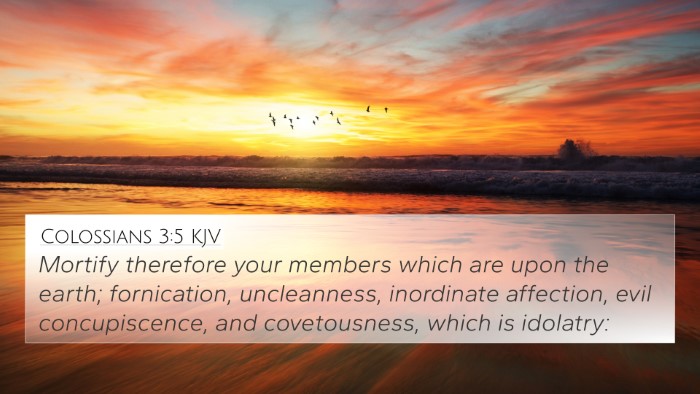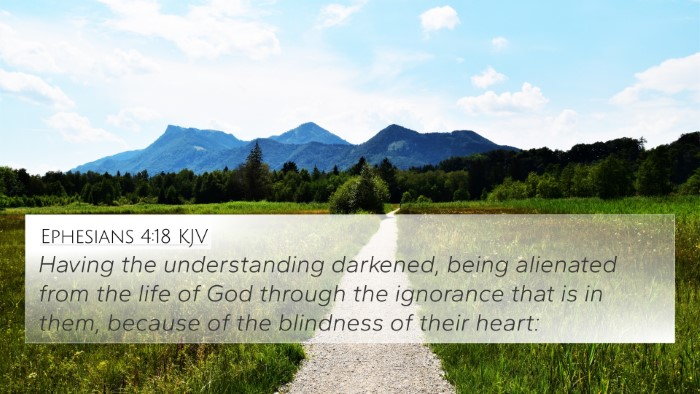Understanding 1 Peter 1:14
Bible Verse: "As obedient children, do not be conformed to the passions of your former ignorance."
Meaning and Interpretation
This verse emphasizes the call for believers to live in obedience to God, reflecting a transformation from their past lives characterized by ignorance and sinful desires.
Key Themes
- Obedience: The verse begins with a direct address to believers as “obedient children,” highlighting the importance of adherence to God's commands.
- Transformation: It contrasts the new identity of the believer with their former way of life, indicating a clear call for moral and spiritual change.
- Ignorance: The phrase “former ignorance” suggests a lack of knowledge and insight prior to coming to faith, reinforcing the need for enlightenment and understanding through the Scriptures.
- Passions: The term "passions" refers to the desires and lusts that can lead to sinful behavior, reminding believers to avoid such influences.
Cross-References and Thematic Connections
This verse is rich in inter-Biblical dialogue, leading to significant connections with other scriptures:
- Ephesians 2:1-3: Discusses being dead in trespasses and sins, emphasizing the former lifestyle of ignorance.
- Romans 12:2: Encourages believers not to conform to the pattern of this world, mirroring the call in 1 Peter to avoid past sinful ways.
- Colossians 3:5-10: Admonishes put off the old self and put on the new, resonating with the theme of transformation.
- James 1:22: "But be doers of the word, and not hearers only," reinforcing the emphasis on obedience.
- Philippians 3:18-19: Speaks about those who live as enemies of the cross and their focus on earthly desires, parallel to avoiding past passions.
- Galatians 5:24: Mentions that those who belong to Christ have crucified the flesh with its passions and desires, signifying the same transformative process.
- 1 John 2:15-17: Warns against loving the world and its desires, encouraging an eternal perspective over past ignorance.
Exegetical Insights from Commentaries
Various commentaries offer rich insights into this verse:
- Matthew Henry: Notes that calling believers "children" signifies their relationship with God and their new lifestyle should reflect familial behaviors.
- Albert Barnes: Discusses the necessity of obedience as a hallmark of genuine faith, emphasizing that it is a reflection of the believer's understanding of God's will.
- Adam Clarke: Highlights the transition from ignorance to knowledge in the Christian experience, stressing the need for believers to live according to their newfound understanding.
Applying the Verse
For practical application, believers are encouraged to:
- Engage in Bible study: To better understand God's will and effectively live out their faith.
- Seek accountability: In their community of faith to maintain the discipline of obedience and transformation.
- Reflect on personal motives: Identifying any lingering passions that may lead back to a life of ignorance.
Conclusion
1 Peter 1:14 serves as a powerful reminder of the transformative journey of faith, urging believers to embrace their identity as obedient children of God and to move away from past ignorance through the strength and guidance of the Holy Spirit. Engaging with related scriptures through tools for cross-referencing can further illuminate the themes found in this passage.












